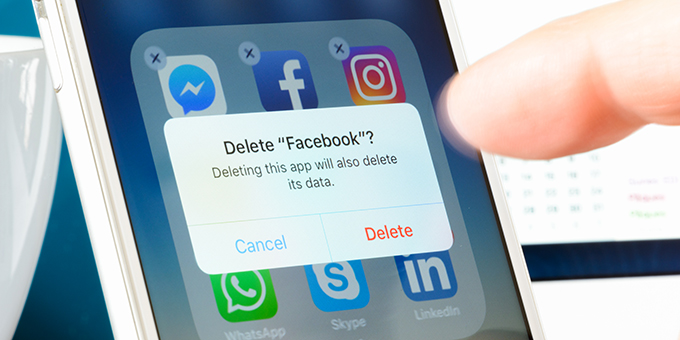
Article

Tips for Staying Ethical When Using Social Media in Legal Practice
- Cyber Breach
- 5 Mins
Social media has revolutionized the world we live in today both in the personal and professional spheres. Many lawyers and law firms use social media for business purposes such as advertising services to attract new clients, networking with other legal professionals, sharing compelling legal news, and communicating with clients. While social media is an acceptable business tool, lawyers must consider their ethical duties before using social media in both personal and professional contexts.
Below are four important things lawyers should take into consideration when using social media:
-
Social media has the potential to reach individuals in multiple jurisdictions. Lawyers must be careful about sharing content in jurisdictions where they are not licensed to practice law. American Bar Association (“ABA”) Model Rule 5.5(b)(2) prohibits lawyers from sharing information that would make the public believe that they are admitted to practice law in a jurisdiction where they are not licensed. Best practices include refraining from offering legal advice over public platforms, including disclaimers stating that a post is not meant to form an attorney-client relationship or provide legal advice, providing transparency about licensure.
-
Advertising legal services over social media is a gray area. When a lawyer knows someone needs legal services and they try to solicit their business for pecuniary gain, ABA Model Rule 7.3 generally prohibits live person-to-person solicitation, which is defined as “in-person, face-to-face, live telephone and other real-time visual or auditory person-to-person communications where the person is subject to a direct personal encounter without time for reflection.” Under the ABA rule, this does not include content that is clearly geared toward the public at large, chat rooms, text messages, or other written communications that people can easily disregard. Defining what type of content that people can easily disregard is where the issue lies. However, if the social media user can ignore, block, or delete the content Rule 7.3 likely will not apply. On the other hand, a situation where the lawyer sends repeated direct messages would surely implicate this rule. Regardless, this is an area where it is very important for lawyers to know their state’s stance on advertising ethics, because many states disagree about what constitutes live person-to-person contact.
-
Ethics come into play with preservation, collection, and disclosure of evidence in discovery. Social media comes up in several contexts during the discovery phase of litigation. Lawyers should implement the following practices:
- Preserve and disclose relevant documents in their original format. ABA Model Rule 3.4(a) prohibits lawyers from unlawfully obstructing another party’s access to evidence or unlawfully altering, destroying, or concealing a document with potential evidentiary value. This also precludes lawyers from instructing their clients to destroy, hide, or alter evidence.
- Use proper collection methods to ensure that the evidence is authentic. This may require sending a subpoena to the provider or using more technically involved collection methods such as dynamic capture and content downloading.
- Refrain from connecting with opposing parties, witnesses, jurors, and judges involved with their cases. This can suggest bias or unethical behavior. However, social media content that individuals make public is fair game for viewing, collection, disclosure, and use during trial.
-
Lawyers have an ethical duty to provide competent representation and keep client data confidential. ABA Model Rule 1.1 requires lawyers to provide competent representation to their clients, which includes keeping informed about the benefits and risks associated with relevant technology. This includes social media usage, features, and any social media developments in the future. ABA Model Rule 1.6 requires lawyers to keep client information confidential unless the client provides informed consent. To keep data confidential, lawyers should conduct social media communication with clients through private messaging, refrain from posting confidential data about a client or case on public platforms, and only conduct communication and case activity over private or secure networks.
Social media is becoming more prevalent in the legal community because it provides an interactive way to connect with clients, other legal professionals, and the public. However, lawyers must consider potential ethics violations before posting or responding to social media content. While this list is not exhaustive, employing the above practices will help lawyers fulfill their social media ethical obligations. Lawyers also need to know about any departures from the ABA rules for each jurisdiction in which they are licensed to practice law. Since the digital world is constantly evolving, lawyers must keep informed on new or enhanced obligations as technology advances. Failure to do so may result in court sanctions, license suspension, or an unfavorable litigation outcome.
The contents of this article are intended to convey general information only and not to provide legal advice or opinions.